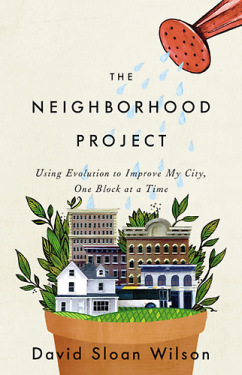- HOME
- INTRO TO THE FORUM
- USE AND MISUSE
- BADLY WRITTEN, BADLY SPOKEN
- GETTING
TO KNOW ENGLISH - PREPARING FOR ENGLISH PROFICIENCY TESTS
- GOING DEEPER INTO ENGLISH
- YOU ASKED ME THIS QUESTION
- EDUCATION AND TEACHING FORUM
- ADVICE AND DISSENT
- MY MEDIA ENGLISH WATCH
- STUDENTS' SOUNDING BOARD
- LANGUAGE HUMOR AT ITS FINEST
- THE LOUNGE
- NOTABLE WORKS BY OUR VERY OWN
- ESSAYS BY JOSE CARILLO
- Long Noun Forms Make Sentences Exasperatingly Difficult To Grasp
- Good Conversationalists Phrase Their Tag Questions With Finesse
- The Pronoun “None” Can Mean Either “Not One” Or “Not Any”
- A Rather Curious State Of Affairs In The Grammar Of “Do”-Questions
- Why I Consistently Use The Serial Comma
- Misuse Of “Lie” And “Lay” Punctures Many Writers’ Command Of English
- ABOUT JOSE CARILLO
- READINGS ABOUT LANGUAGE
- TIME OUT FROM ENGLISH GRAMMAR
- NEWS AND COMMENTARY
- BOOKSHOP
- ARCHIVES
Click here to recommend us!
TIME OUT FROM ENGLISH GRAMMAR
This section features wide-ranging, thought-provoking articles in English on any subject under the sun. Its objective is to present new, mind-changing ideas as well as to show to serious students of English how the various tools of the language can be felicitously harnessed to report a momentous or life-changing finding or event, to espouse or oppose an idea, or to express a deeply felt view about the world around us.
The outstanding English-language expositions to be featured here will mostly be presented through links to the websites that carry them. To put a particular work in better context, links to critiques, biographical sketches, and various other material about the author and his or her works will usually be also provided.
Applying evolutionary science to improve the human condition
Using his insights into the evolution of animals in their natural habitats, a noted American evolutionary biologist has embarked on a more ambitious and revolutionary enterprise: applying evolutionary science to better understand and improve the human condition beginning with his own hometown of Binghamton in New York. In his newly released book The Neighborhood Project: Using Evolution to Improve My City, One Block at a Time (Little, Brown & Company, 432 pages), David Sloan Wilson shares the lessons he has learned by far from his unique multidisciplinary undertaking, which uses benchmarking research techniques like genetic testing and development assessment profiling of students, old people, and members of religious groups as well as nuts-and-bolts social activities ranging from holiday decorations and garage sales to competitions in designing new parks for vacant lots.

Wilson postulates in the neighborhood study that if evolutionary theory can be used to understand the human condition, it can also be used to improve it. “Evolutionary science will not fully prove itself until it, too, can deliver practical answers to the urgent questions that confront us in everyday life,” he says. “This book is therefore dedicated first and foremost to making a difference in the real world at all scales, from single individuals, to neighborhoods, to cities, to the planet. Our problems have arguably never been greater. Fortunately, the tools of science and evolutionary theory enable us to listen and reflect as never before.”
In “The Evolution of Binghamton, Block by Block,” a review of Wilson’s The Neighborhood Project in the August 31, 2011 issue of The New York Times,” Mark Oppenheimer says that much of the book is an inspiring panorama of Wilson’s partners, who include his graduate students as well as the superintendent of Birmingham’s schools. “Many books present science or social science to the curious layman, but none make the actual work of research sound this invigorating,” Oppenheimer says.
Read an excerpt from David Sloan Wilson’s The Neighborhood Project now!
Read Mark Oppenheimer’s review of The Neighborhood Project in The New York Times now!
ABOUT THE AUTHOR:
David Sloan Wilson is SUNY Distinguished Professor of Biology and Anthropology at Binghamton University. He is widely known for his fundamental contributions to evolutionary science and for explaining evolution to the general public. His books include Evolution for Everyone: How Darwin's Theory Can Change the Way We Think About Our Lives, Darwin's Cathedral: Evolution, Religion, and the Nature of Society, and Unto Others: The Evolution and Psychology of Unselfish Behavior (with Elliott Sober). Apart from his own research, Wilson manages programs that expand the scope of evolutionary science in higher education, public policy, community-based research, and the study of religion.
ANOTHER INTERESTING READING:
In “What Killed American Lit.”, a review of The Cambridge History of the American Novel in the August 27, 2011 issue of the Wall Street Journal, noted essayist and short-story writer Joseph Epstein says that for something very heavy that runs to 1,244 pages, the book leaves out an even more fundamental topic for discussion: “why it is important or even pleasurable to read novels and how it is that some novels turn out to be vastly better than others.” He observes that the book is perhaps best read as a sign of what has happened to English studies in recent decades. “Along with American Studies programs, which are often their subsidiaries, English departments have tended to become intellectual nursing homes where old ideas go to die,” he says.
Read Joseph Epstein’s “What Killed American Lit.” in the Wall Street Journal now!







